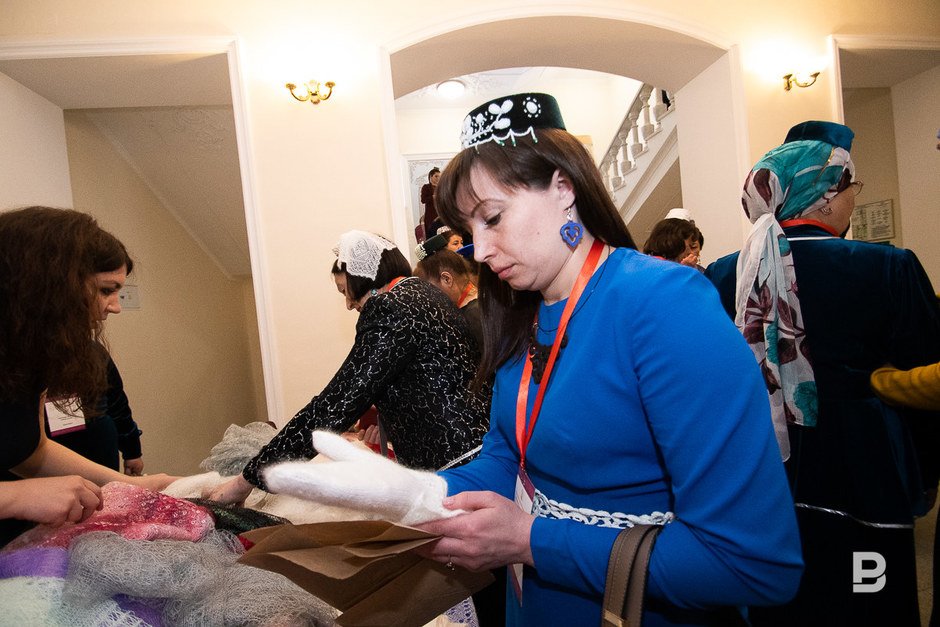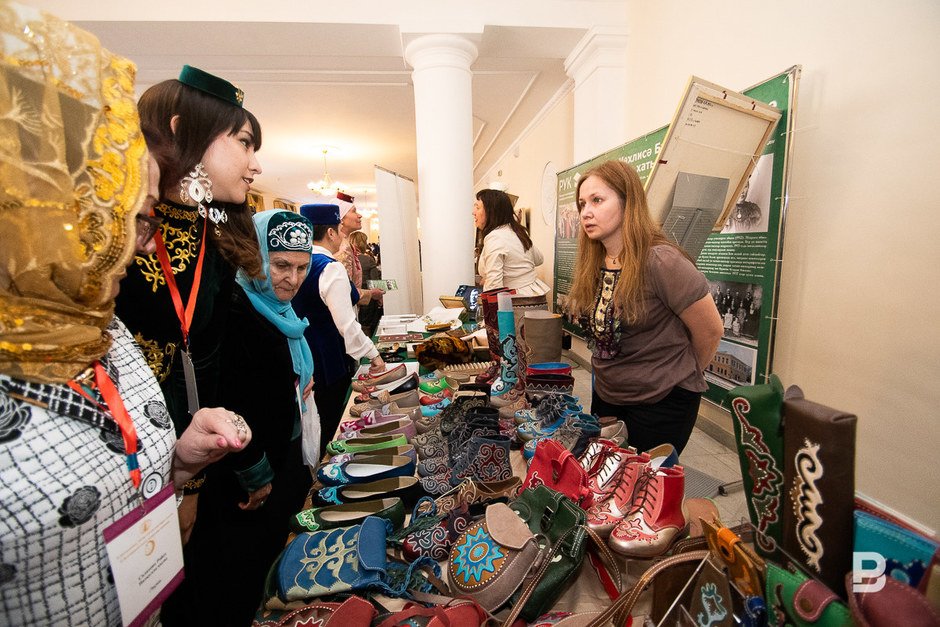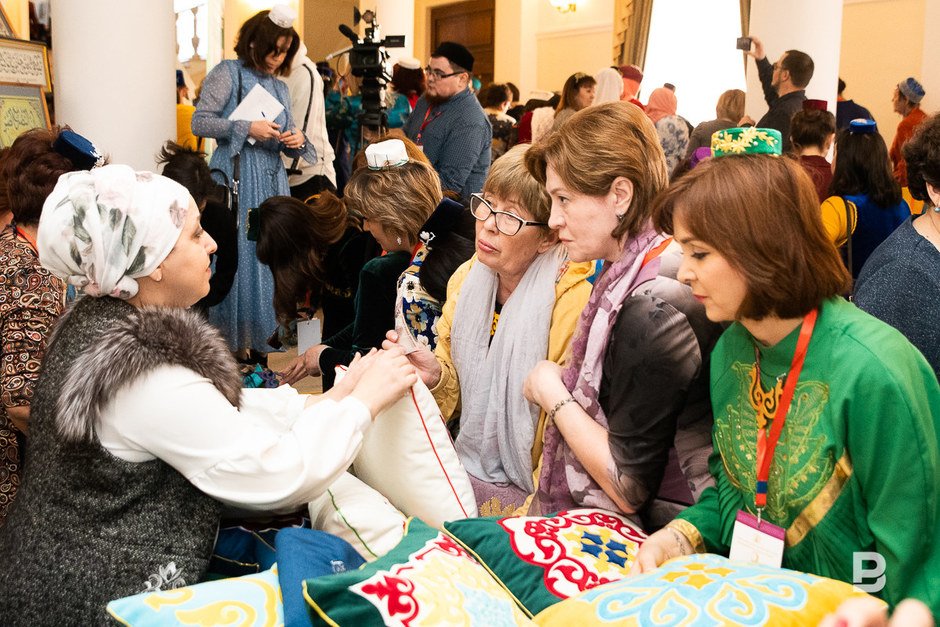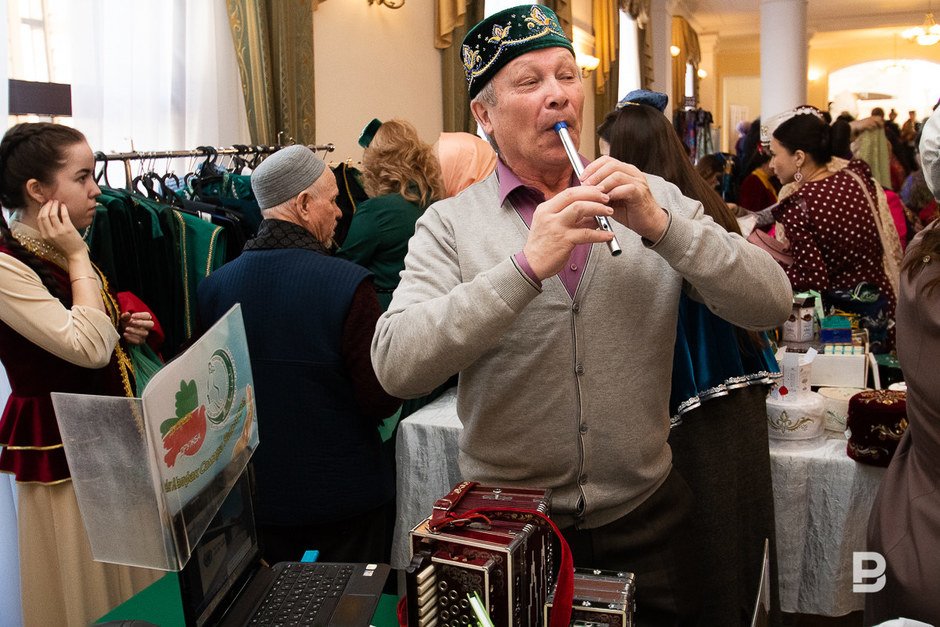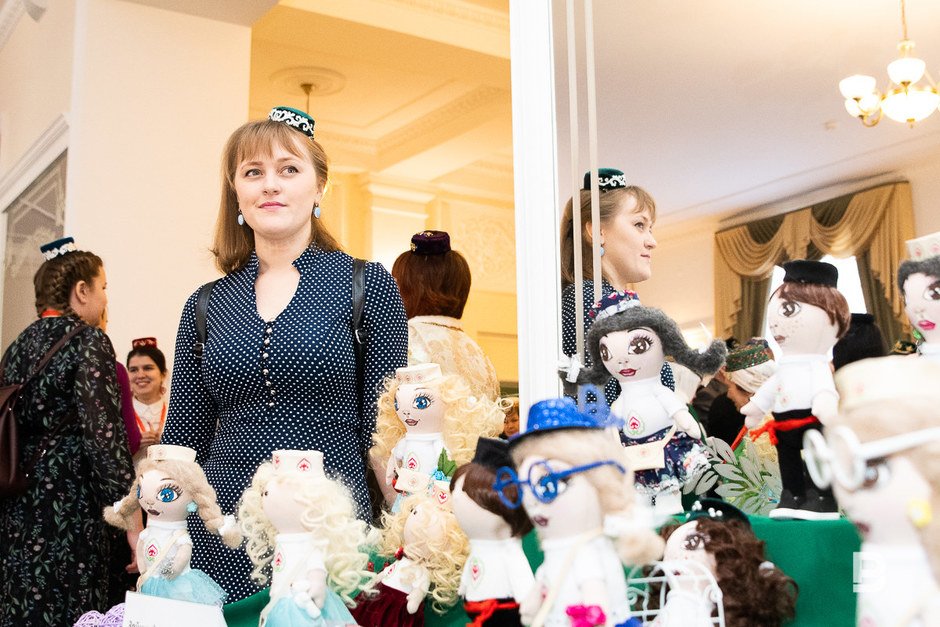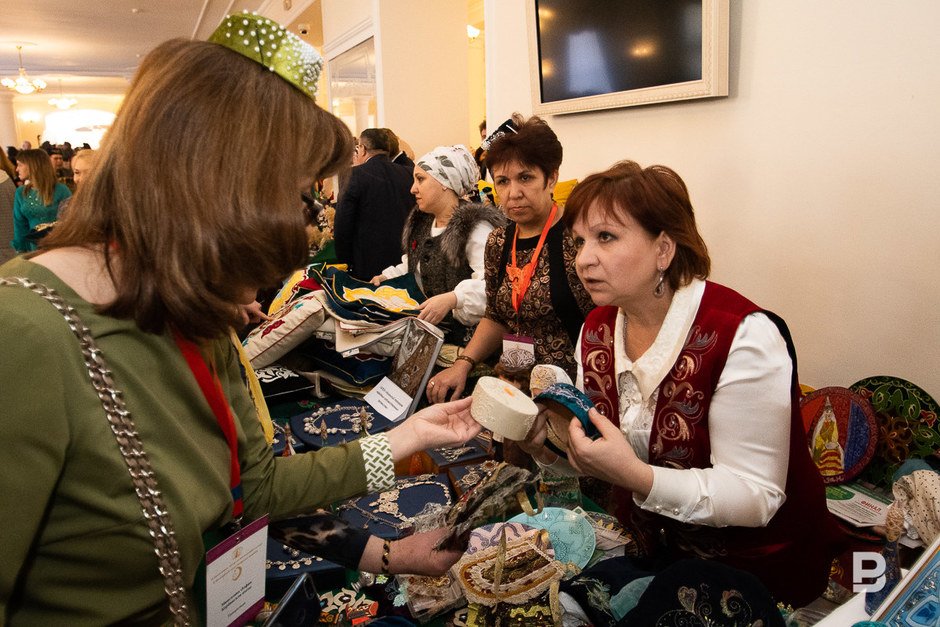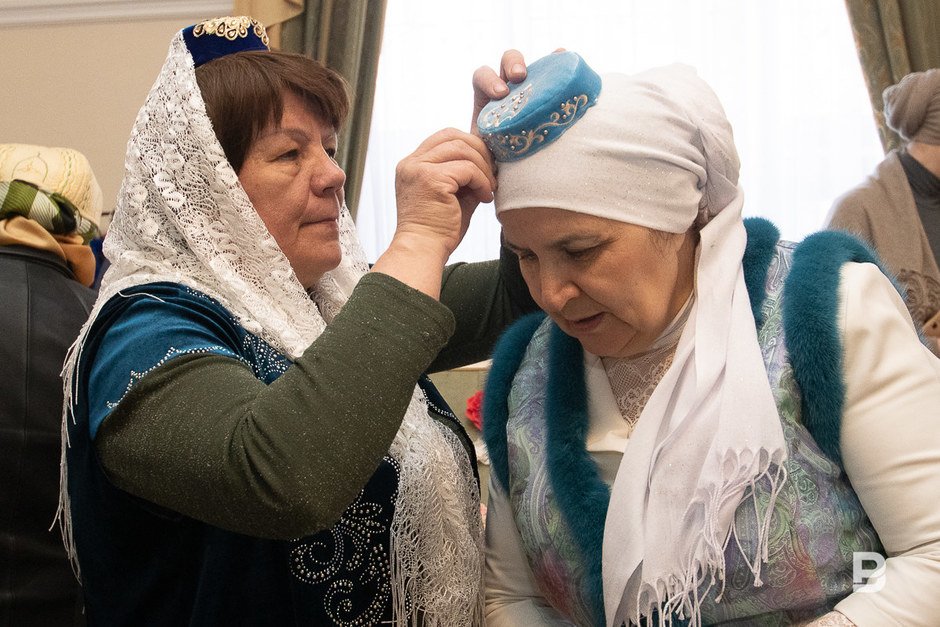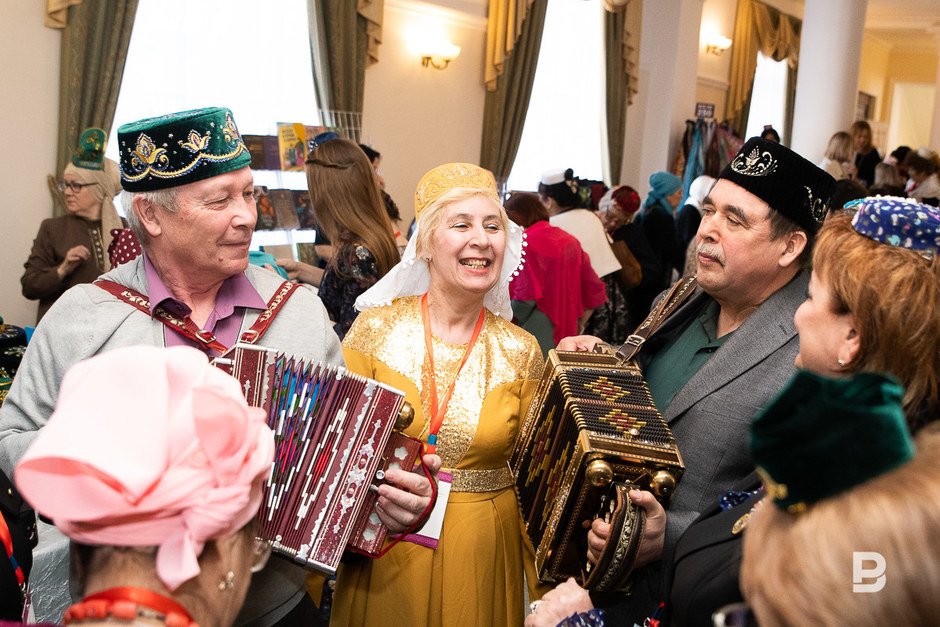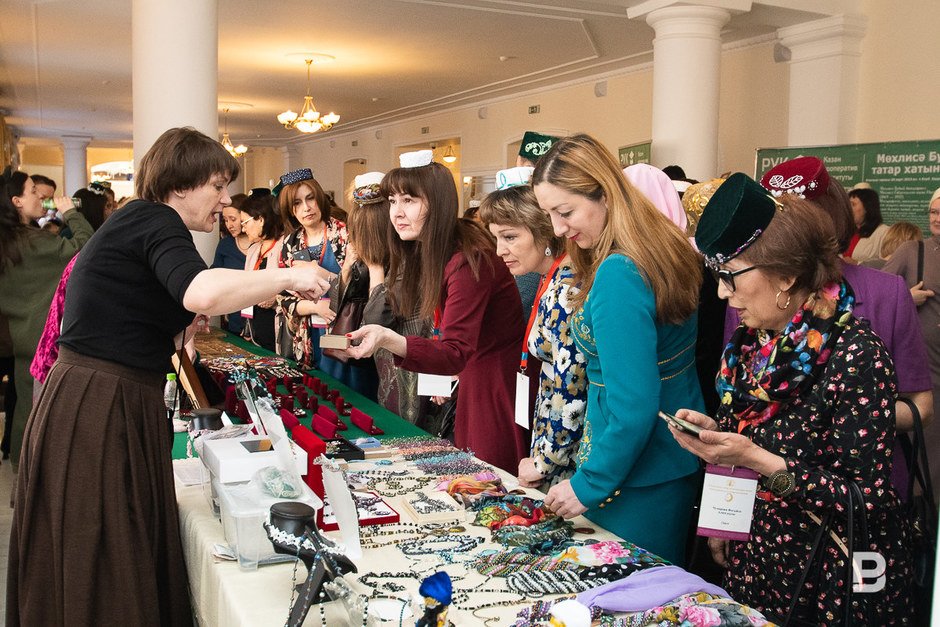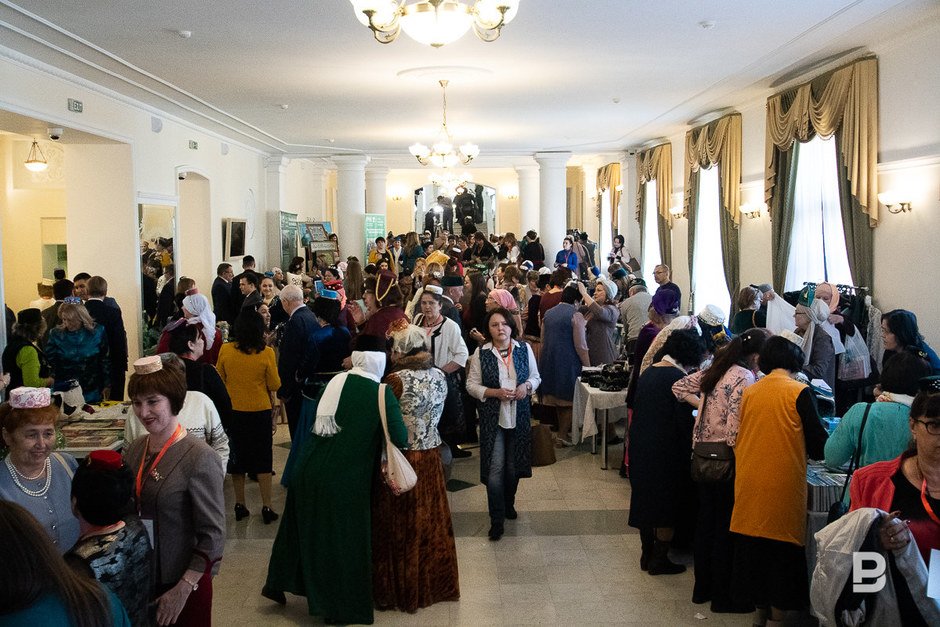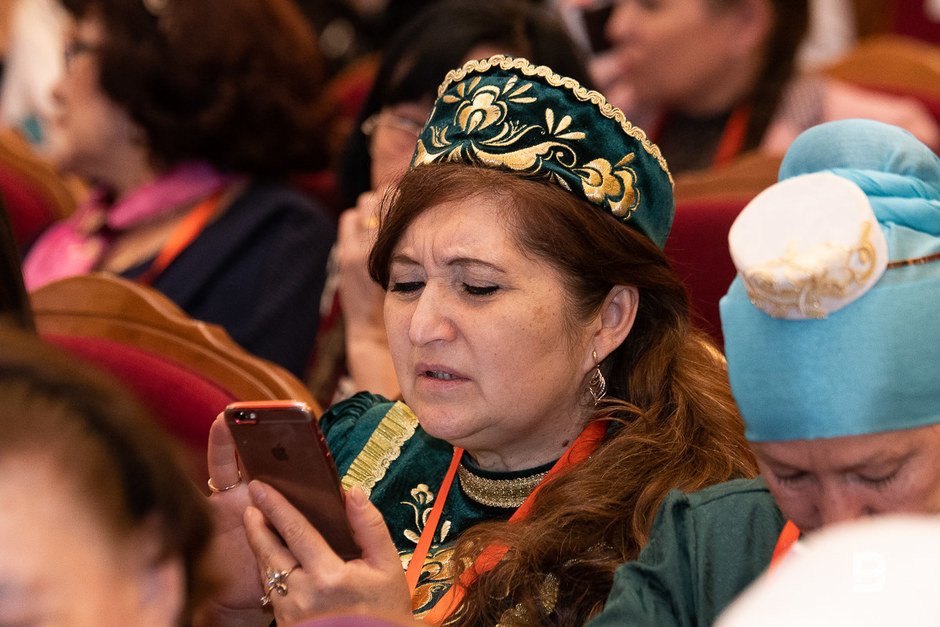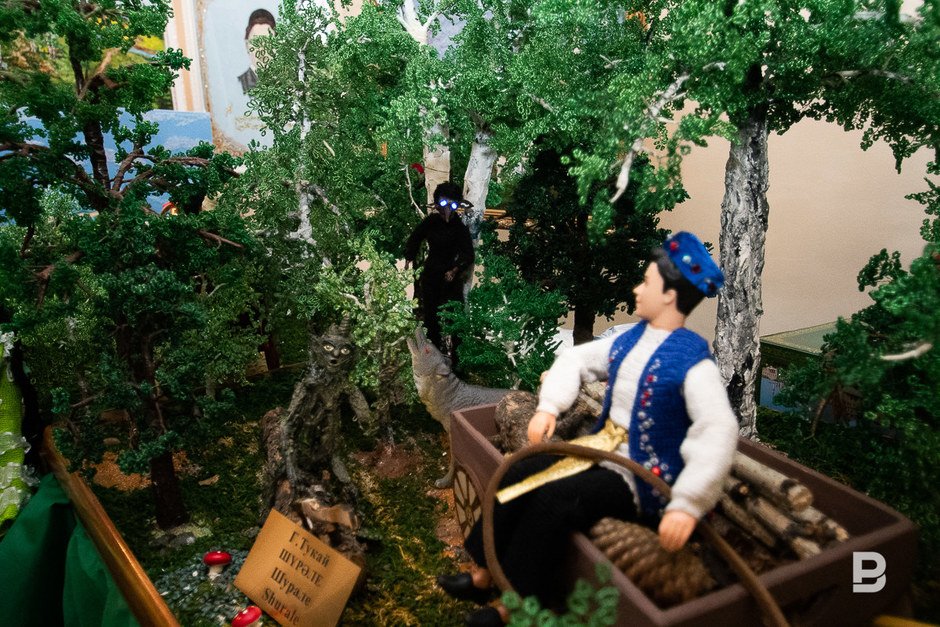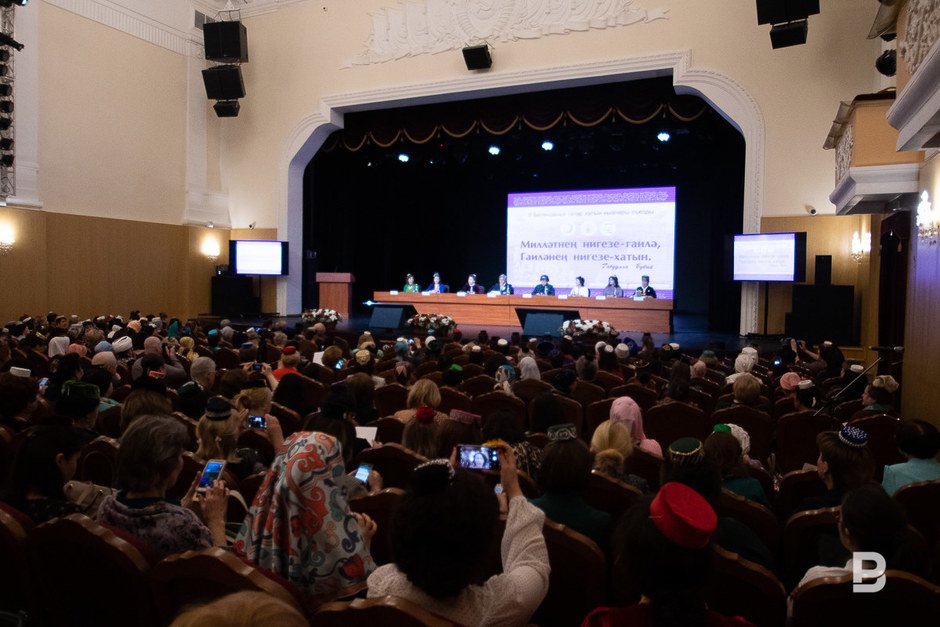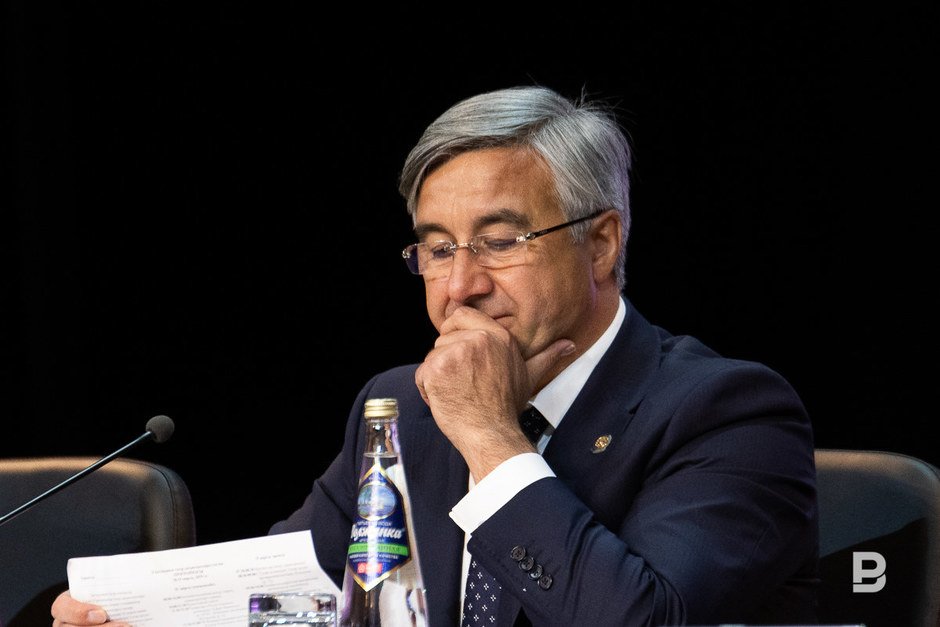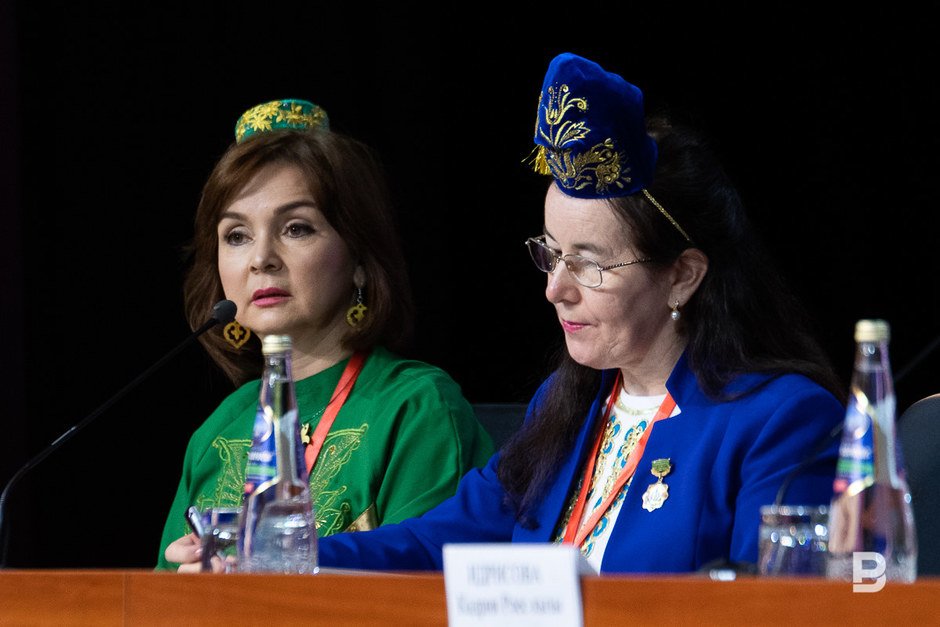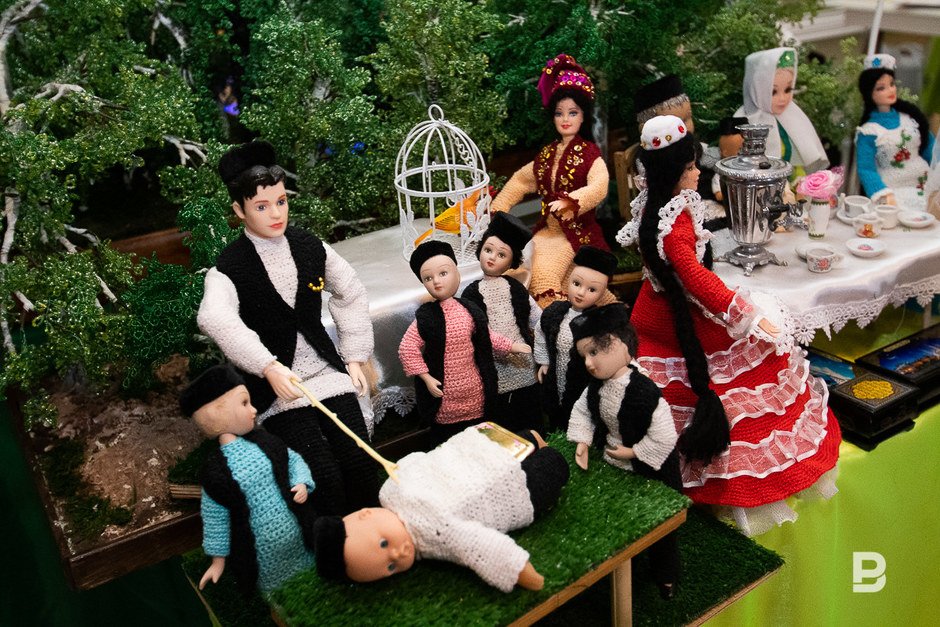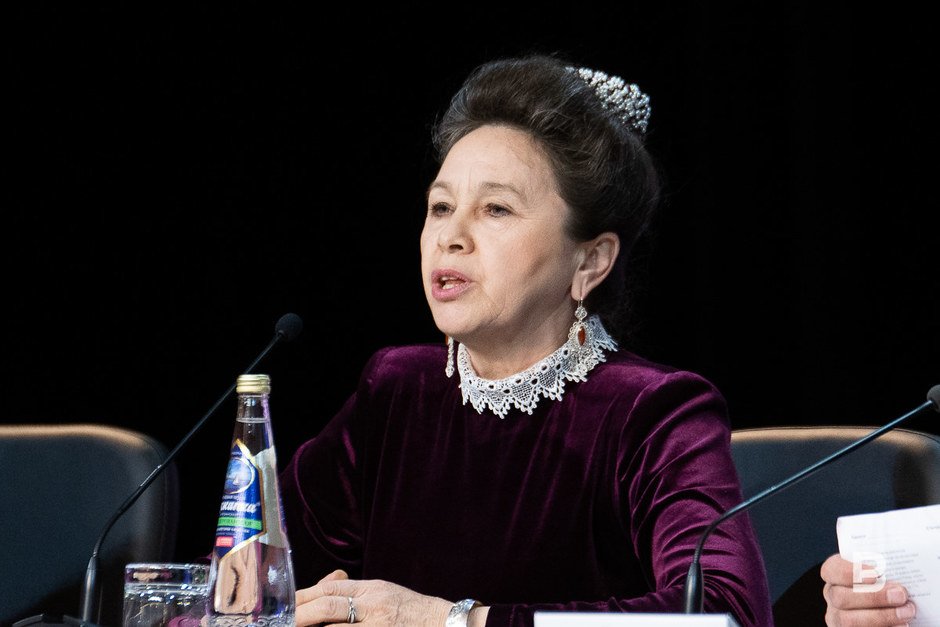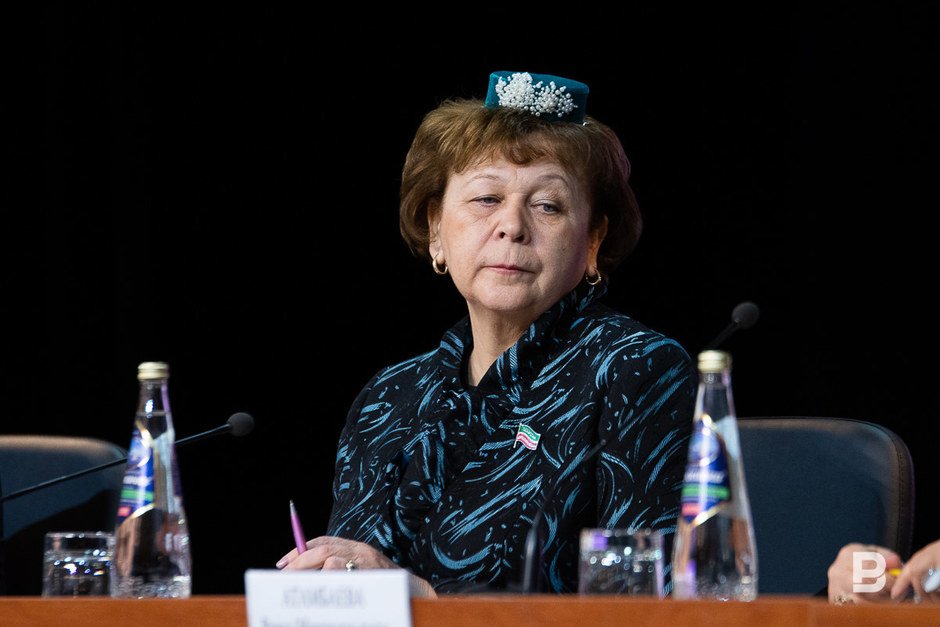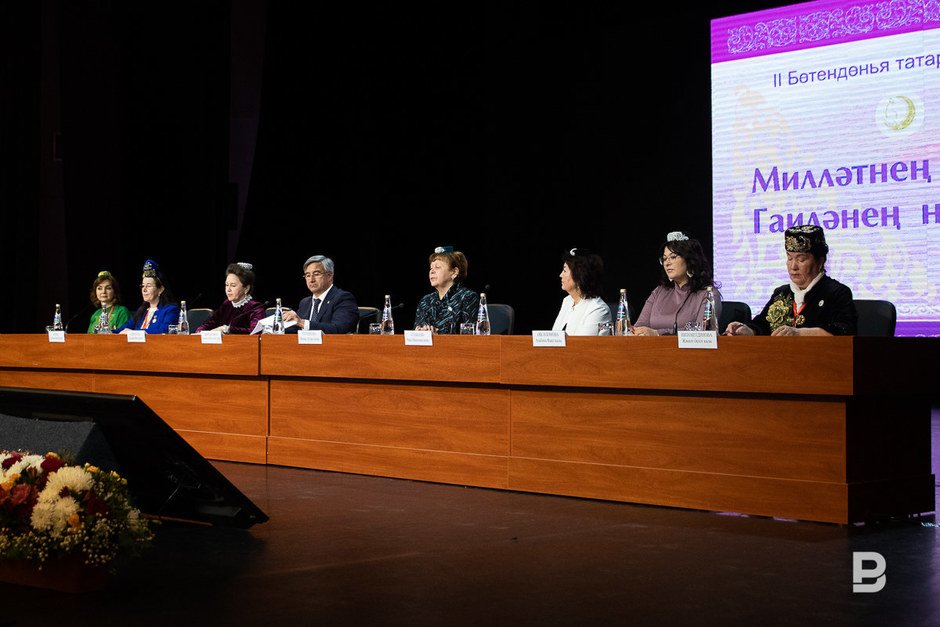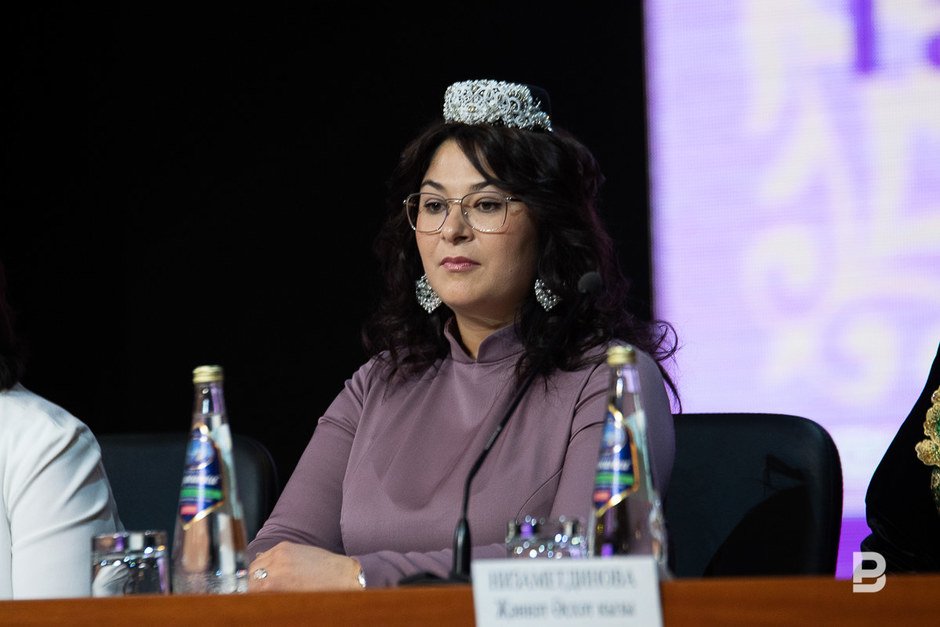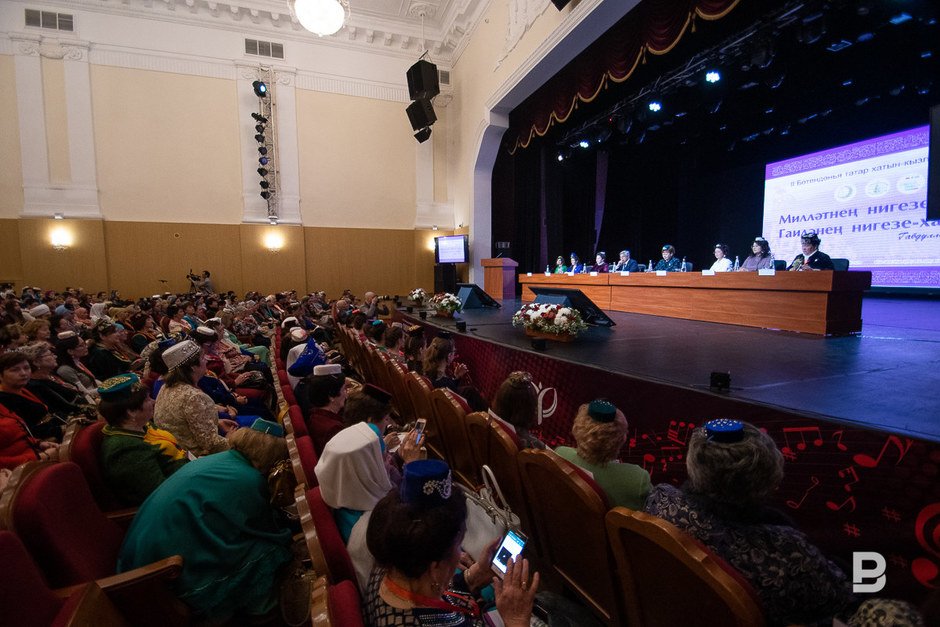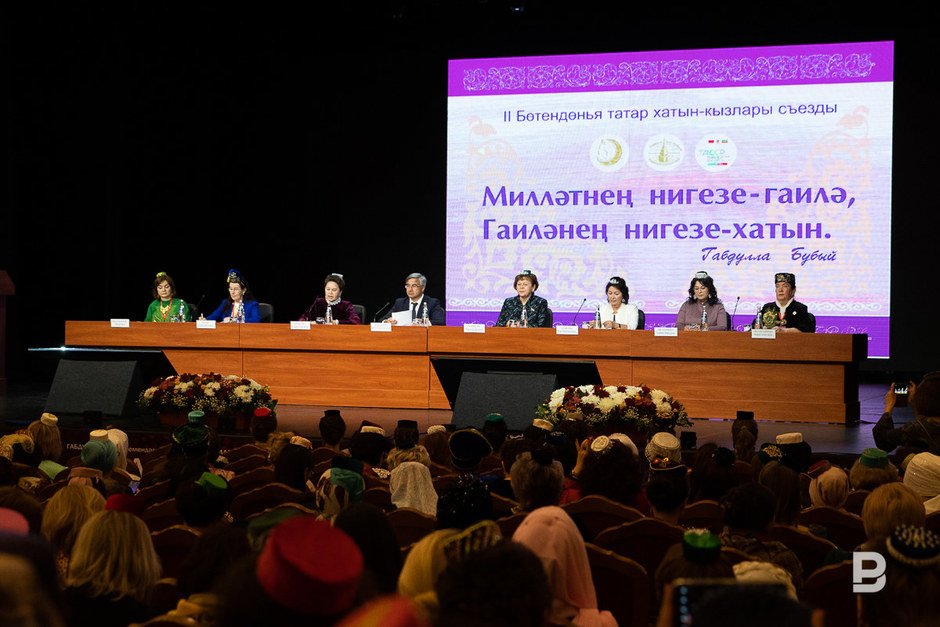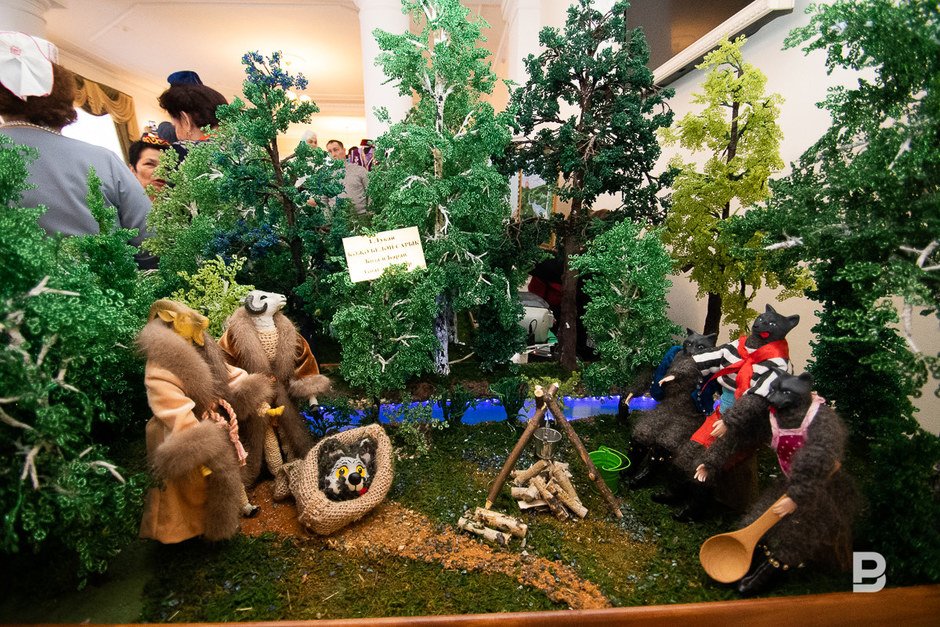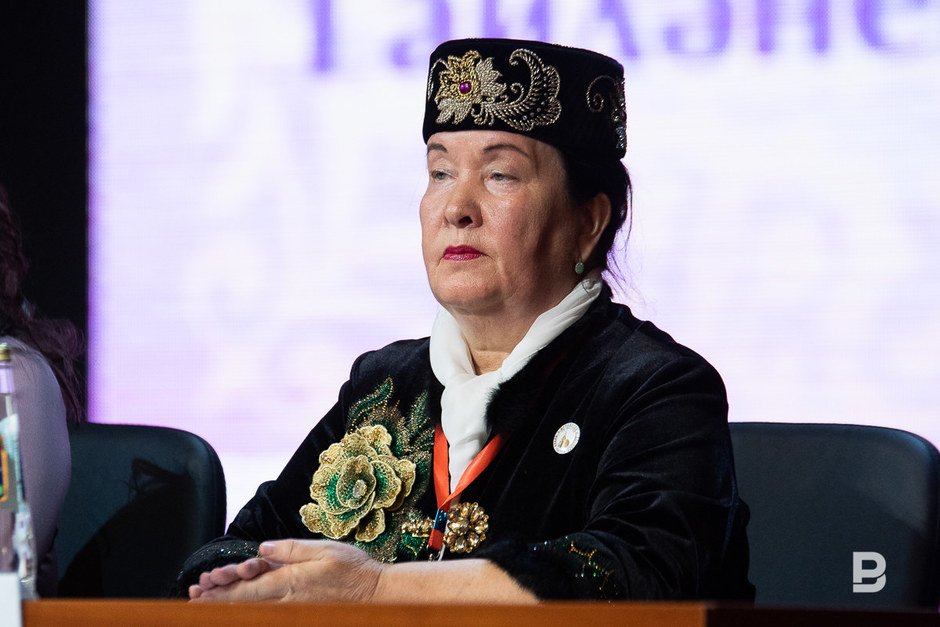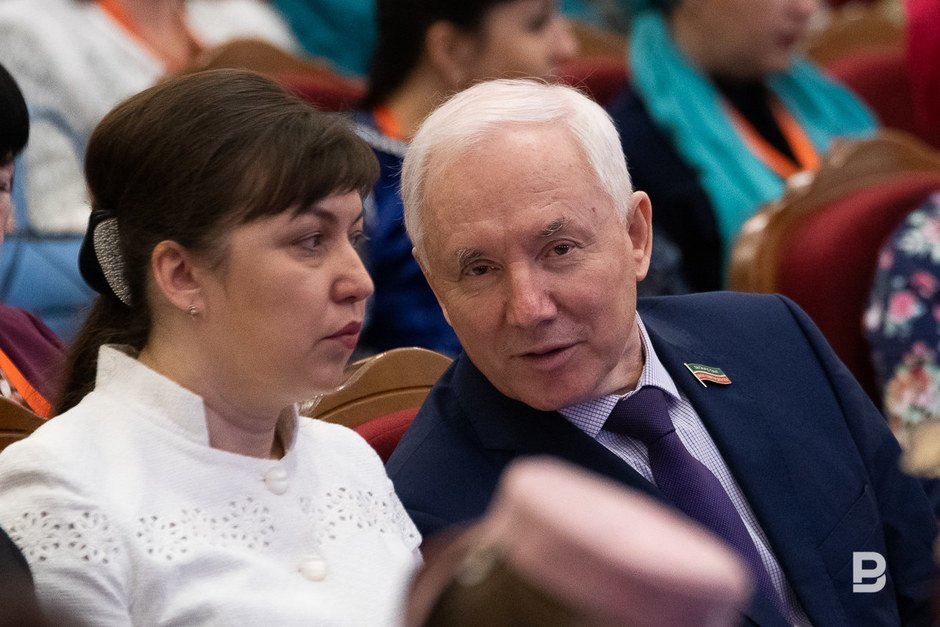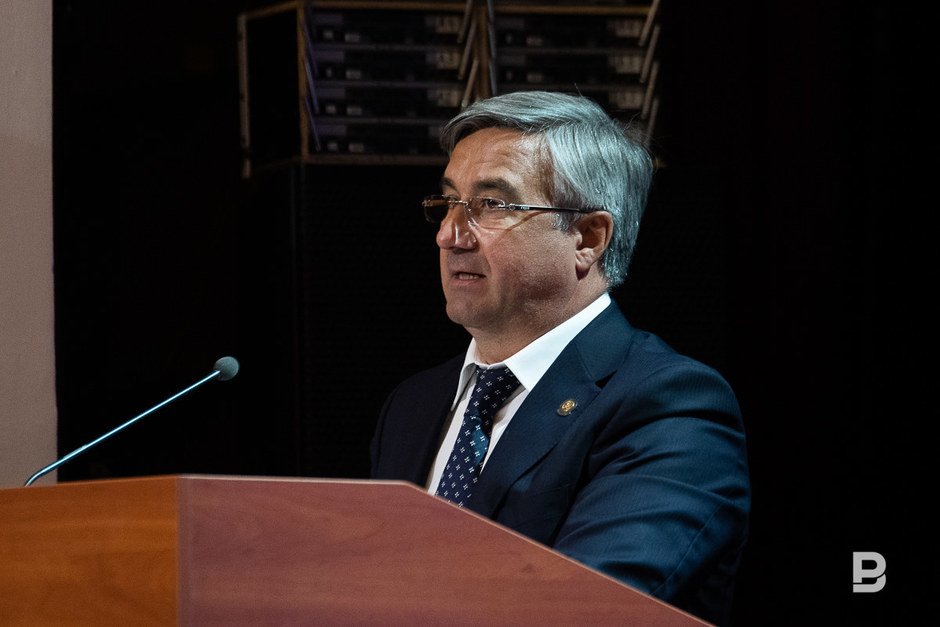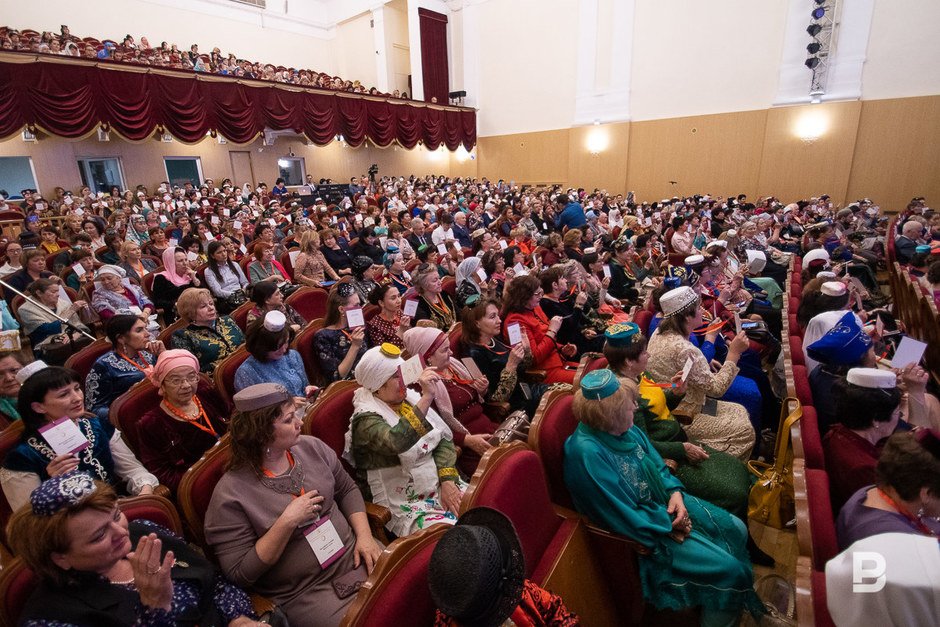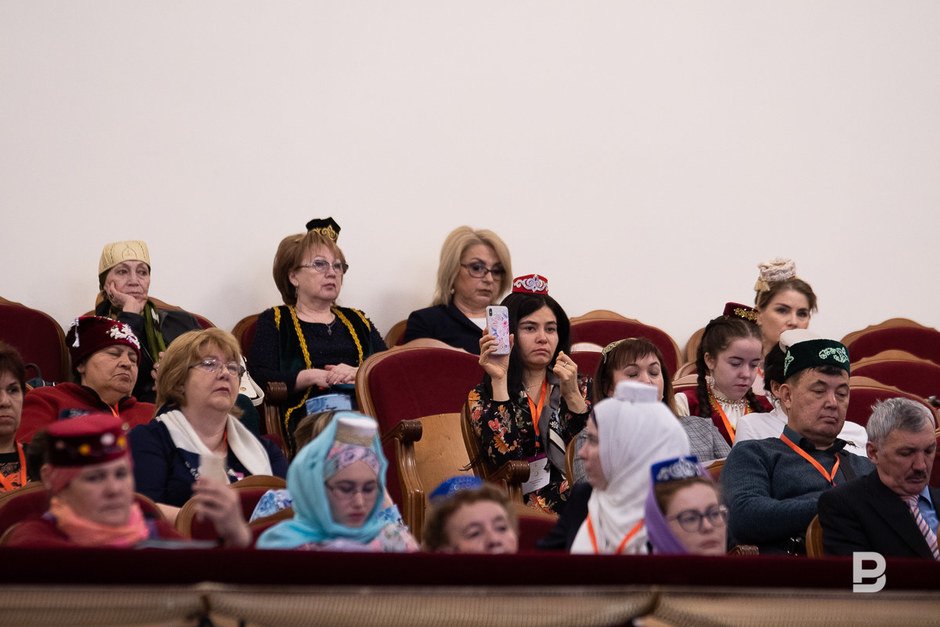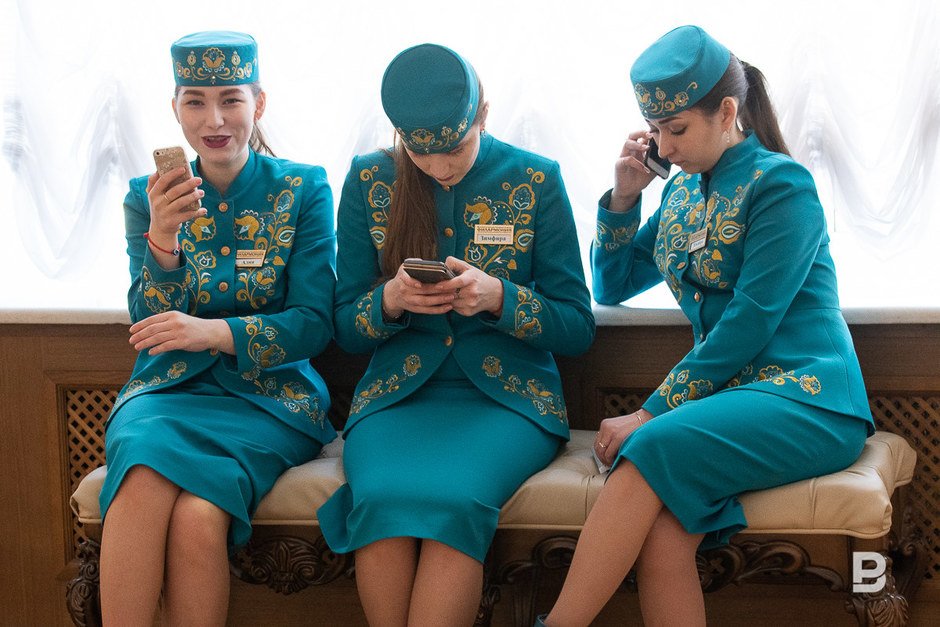Dialogues of Tatar social activists: “One should not divide women into those who are in kalfaks and those without”
About the second World Congress of Tatar Women. The first one took place 102 years ago
“A real man’s man can't be dug up like a potato. He should be brought up,” the imam-khatib of the mosque instructed in his speech at the plenary session of the II world Congress of Tatar Women. The representatives themselves discussed how women fought for their rights 100 years ago, shared their successes, talked about how to preserve the Tatar language. Among the decisions made in the resolution of the Congress, there was a proposal to install a monument to Queen Syuyumbike. Read the details in the material of Realnoe Vremya.
543 delegates from all over the world
In the foyer of the Tatar Philharmonic, where the plenary session of the II World Congress of Tatar Women was held, an exhibition was organized. They sold Tatar books, clothing, jewellery, shoes with Tatar ornament, headwear, textiles, tableware — in short, almost all “happiness of women”. However, many women were already dressed in dresses and costumes with national patterns, almost every second was wearing kalfak, which covered hair a little and was rather a decoration.
Surprisingly, women who actively buying scarves, brooches and handbags, addressed in Russian not only to sellers but also to each other. However, when the participants of the Congress began to take sits in the Philharmonic Hall, they switched to the Tatar language. At least, in that part of the hall where the correspondent of Realnoe Vremya was sitting, they spoke mainly in the language of Tukay.
In previous years, the event was held in the format of the forum every 2 years. This time, it was organized as the II World Congress. The first was held in 1917. As Kadria Idrisova told at the plenary session, 102 years ago 90 delegates from Russian regions, Caucasus, Crimea, Kyrgyzstan, Poland came to the Congress. At the Congress of Tatar women, which was held yesterday, 543 delegates arrived, as well as guests, public figures from the regions of Tatarstan, from 52 regions of Russia, from 17 countries near and far abroad. The average age of the delegates was 42 years.
Many women were already dressed in dresses and costumes with national patterns, almost every second was wearing kalfak
“You see, we are getting younger every year,” Idrisova said with a smile.
Throughout the plenary session, a quote by Tatar writer Gabdulla Tukay was displayed on all screens in the hall, which literally can be translated as: “The fabric of the nation is the family, the basis of the family is the woman.”
“Let Syuyumbike at least in the form of a monument stands on her native land”
Public figure and candidate of historical sciences Tamina Biktimirova told about the first World Congress of Tatar Women. So, by and large, each participant could compare what the agenda was 102 years ago and whether the scale of the two congresses was comparable. Moreover, even before the II Congress, it was believed that it is not much different from the traditional forums organized by Ak Kalfak and that serious issues will not be raised.
As Tamina Biktimirova told, on March 19, 1917, it was held a meeting where they collected donations for carrying out the congress. Some participants donated 1,000 rubles, which at that time was considered a very large amount. The chairman was chosen Hadicha Yamasheva-Tancheva. The congress itself was held on April 24, and during the discussions, the women came to the following decisions: equality between men and women was recognized, the right of women to participate in public and political life, the need to ban polygamy, the right of women to walk with an open face, etc. All decisions were adopted unanimously.
After the congress, active work begins — in cities and villages read free lectures on health care, the courses open to prepare for admission to higher education institutions. For Muslim soldiers special hospitals are organized.
The congress was attended by 543 delegates, as well as guests, public figures from Tatarstan, 52 regions of Russia, 17 countries of near and Far Abroad
However, as Tamina Biktimirova told, after the establishment of the Soviet power the destiny of the majority of the Tatar enlighteners developed tragically. For example, Salima Yakupova, Ilhamia Tuktarova, Abruy Sayfi 20 years spent in the camps; Mukhlisa Bubyi, Maryam Muzafarova were killed.
After a short historical excursion, Tamina Biktimirova named several problems that are relevant today. Among them, there were the decline of national education, the loss of national identity, alcoholism, obstacles in the study of the native language.
“Let's preserve our nation, fight for the former courage, let's talk to children in our native language. Let's fight for the opening of Tatar gymnasiums, do not forget to acquaint our children with the rules of morality. We ourselves should not forget about them,” Biktimirova concluded.
She proposed to include in the resolution the idea of installing a monument to Queen Syuyumbike, which has already been made by artist Kamil Mullashev.
“Let Syuyumbike at least in the form of a monument stand on her native land,” said Tamina Biktimirova.
Biktimirova proposed to include in the resolution the idea of installing a monument to Queen Syuyumbike, which has already been made by artist Kamil Mullashev. Photo: tatar-congress.org
“Real men don't grow on trees”
There were also male speakers at the Congress of Tatar Women. For example, the imam-khatib of the Kazan mosque Tugan Avylym Ilnar khazrat Zinnatullin began by criticizing women for the lack of scarves on their heads. He then spoke about the role of women in the family and how to raise boys.
“We often hear from women that there are no real men today. Here and here they say: ‘Right, right,” said Ilnar khazrat under the sympathetic nods of the ladies. “Real men do not grow on trees, do not float out of the water and they can not be dug up like potatoes. They should be brought up, and their women bring up. If the boy is not brought up correctly, there will be no real man,” said Ilnar khazrat Zinnatullin, addressing the gathered women.
It is also the woman who teach children to respect the father, according to the khazrat — if she calls him a weakling, then the children will treat the father that way. As noted by Ilnar khazrat, women influence the choice of the bride as well.
“The woman's place is in the family. The family does not belittle the woman. If the woman properly raises children in the family, then society will be educated. Let the woman not take offence that she is left at home to sit with the child. This is the most important task,” Ilnar khazrat concluded.
The representative of the community of Australian Tatars, Dilyara Valieva, told that she had to fly 22 hours with flights to Kazan. When immediately after these words she invited other participants to visit, the ladies laughed. Dilyara Valieva briefly told how the Tatars ended up in Australia. The Tatar community began to form after the Second World War, when families from Chinese Manchuria, Turkey, Japan and Russia began to come there.
Ilnar khazrat Zinnatullin began with criticizing women for the lack of scarves on their heads, and then told about the role of women in the family and how to educate boys properly. Photo: dumrt.ru
According to Valieva, today there are more than 500 people in the Tatar community in Australia. On the occasion of the 60th anniversary since the coming of the Tatars on the mainland at the state level of South Australia there was organized a holiday, which brought together about 300 Tatars, as well as politicians and public figures of Australia. To preserve the language and traditions, local Tatars organize Sabantuy, Tukay evenings and iftars. Since the ‘80s a Sunday school operates in Adelaide, where children can learn the Tatar language.
Another foreign guest was the wife of the former president of the Republic of Kyrgyzstan, Raisa Atambayeva. She said that her parents are from Tatarstan: her father was born in Sarmanovsky district, and the mother — in Bugulma, but they met in Kyrgyzstan, where they went to work in the postwar years. Atambayeva noted that she tries to visit close relatives from Tatarstan every year. She remembered how she participated in the V World Congress of Tatars.
“I'm a medic. At the Congress, I met with doctors from Tatarstan. In particular, chief expert on health protection of children and adolescents of the Volga region (academician, Professor) Elvira Nurislamova Mingazova. It was a turn in my fate. The problems that your republic dealt with were not developed in our country. This is the protection of the health of adolescents. Being the first lady, I have been trying to establish this research work since 2011. We need to create such centres for the protection of adolescent health,” said Raisa Atambaeva.
As proof, she cited statistics. According to her, after graduating from school, that is, in 16-18 years, girls are most diagnosed with eye and ear diseases, in second place — diseases of the nervous system, in third place — diseases of the reproductive system.
Kadriya Idrisova strictly asked the participants to focus on the resolution
“We cannot divide women”
As the plenary session did not fit within the planned time frame, it was offered to omit the report and go directly to the adoption of the resolution. But participants from Kazakhstan and Uzbekistan brought embroidered vests and scarves and did not want to leave without throwing gifts on the shoulders of the chairman of the women's organization Ak Kalfak Kadri Idrisova. The meeting risked turning into a “Field of dreams”, so Idrisova strictly asked the participants to focus on the resolution, especially since public figure Fauzia Bayramova was already standing at the microphone, ready to make her proposals.
She called the resolution “soft” because it does not cover all the problems. Bayramova offered to work on the preservation of self-consciousness, to organize educational programme on history, to promote fighters for independence. To do this, she proposed to create a section “historical propaganda”. The second proposal concerned the creation of a national educational system so that in kindergartens, schools and universities it would be possible to teach entirely in the Tatar language. For this purpose, Fauzia Bayramova proposed to organize a section of Tatar education.
As one of the foundations for the preservation of the nation, she called Islam, namely morality and compassion, which are characteristic of this religion.
“We cannot divide women into those who are in headscarves and those without headscarves, in those who wear kalfak and who do not. We are all Tatar women,” Fauziya Bayramova concluded.
Let us note that this sounded like a hidden reproach to the khazrat and other speakers, advocating for the wearing of scarves, and Kadriya Idrisova, which is still at a press conference on the II Congress of Tatar Women, made a remark to journalists for the fact that they came without wearing kalfak.
